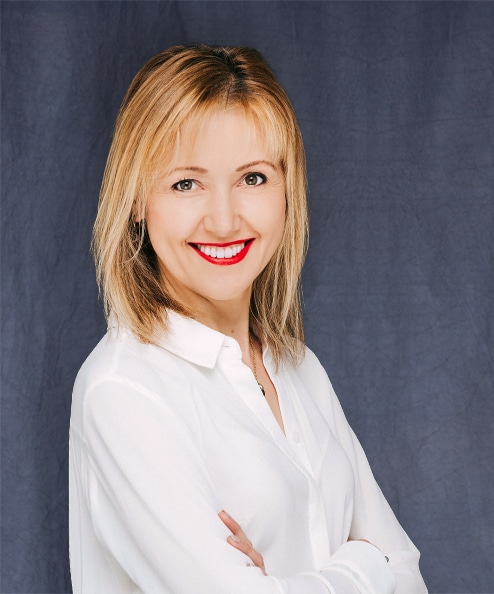Part II of an interview between Partner Sabit Tapan and Kadir Gunduz, Regional Managing Director Indonesia / Papua New Guinea at Coca-Cola Amatil Indonesia
For part I, please read: “I believe in ‘cross-pollination’ of talent and ideas between emerging and developed markets”
Leadership Style in Emerging Markets
SABIT: Looking specifically at yourself, how would you describe your leadership style in emerging markets?
KADIR: I would say it is situational. I use a consultative style when required, and at times a directive style when required. I try to exercise the latter as little as possible, but at times, especially at the beginning of my assignment, I would use it more.
When I took over the Asian operations, each country had different issues, but the common theme was that they all were loss-making entities. In these situations, people expect their new leader to provide guidance, to be a visionary if you like, and to provide organisational clarity. You need to embed that vision and to rally people towards the common goal, and I’ve found that a simple rallying cry is a highly effective way of achieving that.
In one operation, the rallying cry was simply “Cash is king!” In other words, half of the cash is generated from the “top line” alone. This translation from top line to bottom line can be improved, which “multiplies the formula” so the revenue grows faster than the volume, costs increase below inflation, gross profit grows faster than revenue, and profit grows faster than gross profit; and this was the focus. We rallied the entire organisation in five countries behind this principle, and in four years the cash-losing operations were transformed into an EBIT-positive organisation.
In Dubai, the rallying cry was “Expansion!” and as a result, we managed to close the largest FMCG deal in the history of the Middle East with a global company.
Here in Indonesia, the rallying cry is “Acceleration and Transformation!” – acceleration of the top line and transformation of the business – and we have delivered this.
The point I’m trying to make is that you need a rallying cry to get everyone aligned, but in order to do that you must be very clear on how you will achieve that strategy with your team, and together with your team you must embark on a journey of creating “organisational clarity”.
I’ve spent a lot of time creating organisational clarity, and I use all the means available to me, from town hall meetings to internal social media. I also like to know my business, so I would describe myself as a details guy. I know my numbers, this is something that I have always done, and I take responsibility and accountability for the results. I also hold my team accountable for their areas of responsibility.
Above all, people are key. Organisational clarity gets people on board and engaged, and then we invest in their capability development, as we did in Indonesia, and this empowers them to make a difference.
SABIT: Interesting. We have been talking about your “rallying cry” and “organisational clarity” strategies to lead and manage businesses in emerging markets; can this also be applied to developed markets? Is this a general recipe for success which is not dependent on the development level of the market, or where the market stands in the life cycle? What is special about using these two strategies in emerging markets?
“Emerging markets, have a relatively smaller talent pool, so it is more important to have a common goal and a rallying cry, and create this organisational clarity.”
KADIR: I agree with you: perhaps it sounds generic, and it may apply to every organisation, whether developed, emerging or developing. Remember though, one of the challenges that you face in emerging markets, at least in my experience, is a relatively smaller talent pool, so in emerging markets it is more important to have a common goal and a rallying cry, and create this organisational clarity. I also find that the process of creating organisational clarity also builds capability, because that requires you to break the target down into pieces and into functions, so that people understand their roles and responsibilities.
For example, “cash is king” is a very generic term, so how can a line operator understand their own contribution to that cash pool? You need to translate that into actionable pieces for the line operator; we have to help them to understand that avoiding spillages, running machines and conveyors efficiently, these things contribute to the rallying cry so that they understand, otherwise it remains a mere aspiration, right?
I can talk about other specific things that were relevant for me, but they may not be relevant for everybody working in emerging markets. As I said, you need to be very close to the front line of your operation, where the rubber meets the road both internally and externally. You need to know the manufacturing process, the talent on the floor and outside at the sales rep level and the shop level, so that you understand your team’s challenges and you can really act as an enabler. That’s my role – to make their life easier.
SABIT: Very clear, thank you! Now I understand what you mean by “organisational clarity” – in more developed markets you can simply define the organisation of the departments and perhaps of some of the functions, but in emerging markets, it is necessary to go down to the lowest level in the organisation and explain what the top line argument means at that low level, so that the rallying cry becomes meaningful. You’ve also mentioned that this is the way in which you have learned organisational clarity; how would you describe your own development in emerging markets?
KADIR: I’ve learned through personal experiences, but you can only experience so much yourself, so I try to learn from others’ experiences too. When you build your own teams, you can learn from their experience as well. In this industry, there are plenty of opportunities to connect and share experiences in industry groups, community forums and advisory boards, and of course there are opportunities to read great stories and learn from them.
Last week, when I was talking to my coach, I mentioned some new results in my latest 360' Myers-Briggs self-assessment, which I’ve done several times over the past two decades. That’s probably the accumulation of experience; in my professional development, I see that I’m acting more and more as an enabler rather than trying to do everything myself.
I’ve learnt a lot during my current assignment, and obviously, the culture I’ve operated in and my team have had a big influence on that. They always rise to the challenge, and my job is to enable them. We’ve invested in talent development, and the ideas that this group generates are amazing. Talent forums are a great opportunity to share your knowledge, to keep a finger on the pulse of the business, and to identify new and exciting opportunities. One of the key success criteria that I set myself when I arrived in Indonesia seven years ago was to develop and export talent. As I mentioned in an earlier interview, when I arrived in Indonesia, the team had 24 expats and had not exported a single talent within the group, but now we have developed local talent and localized the majority of the expat roles and now have several Indonesian expats at HQ in Sydney, including the Group CIO.
“In the end, you can personally develop yourself to some level, but there are incredible opportunities to develop through your connections with the people around you.”
SABIT: If we go country by country, what have you learned in Russia, and Tanzania, and Thailand, and Dubai, and now in Indonesia? What is it that you’ve learned in each of these countries which relates to leadership in emerging markets?
KADIR: Russia was my first international assignment. As you know, it was a difficult period – a couple of years after the 1998 Russian economic crisis. We were consolidating bottlers, and I took over South Russia.
Prior to my first assignment, I was a General Manager running my own operation. The Russia assignment was my first assignment where I had responsibility for a region but didn’t personally run day-to-day operations on the ground. It was particularly difficult because there were some strong characters among the GMs reporting to me. The key lessons were how to manage different personalities, and how to use influencing skills rather than hierarchical power.
SABIT: Fair enough, and then you experienced a completely different set-up in Tanzania?
KADIR: Well, that was the first time I had complete responsibility for running a fully-fledged independent company. It was a very different set-up, and obviously I quickly developed a much better understanding of business operations as a whole. Working as a Regional Director of a large company where you only see part of the picture is different from having end-to-end responsibility. One interesting lesson I learned in East Africa was that a beverage is not a beverage for everyone. A bottle of beverage can be a moment of refreshment for a consumer in Vienna, but a meal for a consumer in Tanzania, because of the energy provided by that drink relative to the consumer’s overall daily intake. I guess that answers the question that a lot of people have about African beverage consumption levels, given the level of income there. It was an important lesson, which influenced how I looked at the business – not just in terms of beverages, but the entire FMCG market, the structure, and the way that everyone does business. It was unique, tailormade, a very interesting experience.
SABIT: It definitely deserves much more in-depth discussion. Let’s revisit that topic later – what a specific product means to different consumers in different markets – and continue on this journey. After Tanzania, you moved to Thailand. What did you learn in that part of Southeast Asia?
KADIR: Again, Vietnam and all these other countries had unique positions. What I learned there was how to operate as number two in the market, after being the market leader in every other market I had worked in. It was difficult in Vietnam, and being a challenger really honed my skills in being simultaneously street-smart and strategic.
In Vietnam, we worked very closely with our partners in the Coca-Cola Company. We made some strategic decisions to rationalise and focus the business in order to grow, and in the third year we became market leaders in Ho Chi Minh City for the first time. That was an interesting and challenging time.
Contrast that with Nepal and Sri Lanka, where there was a great deal of internal conflict. In order to do business and grow despite these challenges, you and your team must be very vigilant, very practical, very resourceful in order to keep the business running.
I did not start out with any operation in Laos at all: it was one of only four countries in the world where our brand wasn’t present, along with Cuba, Myanmar, and North Korea. After three years of applications and rejections, I finally received an approval from the government and broke the competitor’s monopoly. Navigating in that environment was a fascinating process, as we were bound by a lot of corporate rules, and worked with many different stakeholders.
I guess this again links to the experience I had in Russia. Each country had its own general managers running the countries, and I was the division director. Managing this business together with the GMs really helped me to hone my skills working with the executives while rallying towards the common goal.
SABIT: On to Dubai. What leadership skills did you gain in Dubai?
KADIR: In Dubai, I was briefly separated from the Coca-Cola System. That assignment was my first experience working with a company owner who had created that company from scratch and was the chairman while I was the President and CEO. Our objective was to grow and to form a joint venture, and we succeeded.
We grew the business substantially, top line and bottom line, and we completed the largest transaction in the history of that region with The Coca-Cola Company. What I learned from that experience was priceless; working with a chairman while simultaneously running the company, getting into joint venture negotiations with the Company, handling the due diligence process, creating a joint venture book with very detailed rules, all while still doing my day job! I didn’t have massive resources and I was working with my team who were also running the business on a day-to-day basis, so it was a truly unique experience for me, which I think cemented a lot of things that I had learned in the past. This business did not have cash or profitability problems, and it was fairly profitable and well-run, but it had an opportunity to grow. When I took over, the business was worth around USD 500 million, and when I finished my assignment it was a USD 850 million business.
SABIT: This was a completely different experience from everything you had done earlier. At the end of it, you again had the opportunity to go to an emerging market, and you landed in Indonesia. You have now been in Indonesia for more than six years, and you must have accumulated a lot of new experiences – setting the pandemic aside, what have you learned in Indonesia over the past seven years?
KADIR: This has been my best assignment from a lot of different perspectives; from a learning perspective it was priceless.
“What I learned, and had a chance to prove, is that ‘change is possible’ – even in an environment where you are bound by tough rules and regulations.”
However, it is only possible if you are transparent, and you are able to create organisational clarity by explaining to people why you are doing what you are doing, and what’s in it for everyone, in the medium to long term. The final step is getting people onboard to become co-enablers with you – part of the change rather than resisting the change.
Throughout my career, I’ve used engagement surveys to monitor the team’s feelings about the changes that were being implemented, and how successful we were at achieving organisational clarity. I believe that there’s a strong correlation between the company results and what the surveys tell you.
To give you an example, we reduced our headcount in Indonesia by around 4,500 people over a four-year period, and completely transformed the business supply chain and route-to-market. We streamlined a lot of legacy policies which had been created 25-30 years ago. These changes were not necessary favoured by everyone, and yet during that period we improved our engagement score from 64% to 81%. Typically, your engagement score drops if you are going through such a drastic change – I have not seen many operations raise their scores in those conditions.
SABIT: You say that your engagement score increased from 64 to 81. This is unusual when you are reducing headcount by thousands – almost 4,500 people in an organisation of 12,300!
KADIR: It wasn’t only headcount reduction – it was a true transformation and business restructuring, with the headcount reduction just one outcome. We looked at it holistically, transforming the supply chain, transforming the route-to-market, transforming our execution capabilities. It was about creating an agile, nimble organisation designed to compete in emerging markets like Indonesia, where revenues are always under pressure due to competition, and competition is pretty much centred around affordability and price wars. The business was structured for an era when the company had almost a 40% market share, but when I took over, the market share had dropped to around 17%, so that was obviously an issue. It took me a bit of time to convince the team of what was possible and how to do it, but once that clarity was created, everybody embraced it and we delivered. This was an incredible learning opportunity for me.
SABIT: We should set some time aside for a detailed talk about the restructuring journey in Indonesia, and how the market share can decrease from 40% to 17% and then come back up again, but this topic is so rich in content and detail that we should save it for another day.
KADIR: I would love to talk about it, because the programmes in each of these three major areas – supply chain, route-to-market and capability development – received external awards, and within the system they are all recognised internally as best practice.
END OF PART II





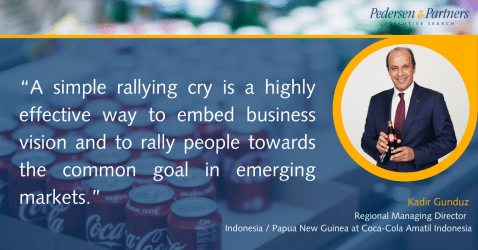


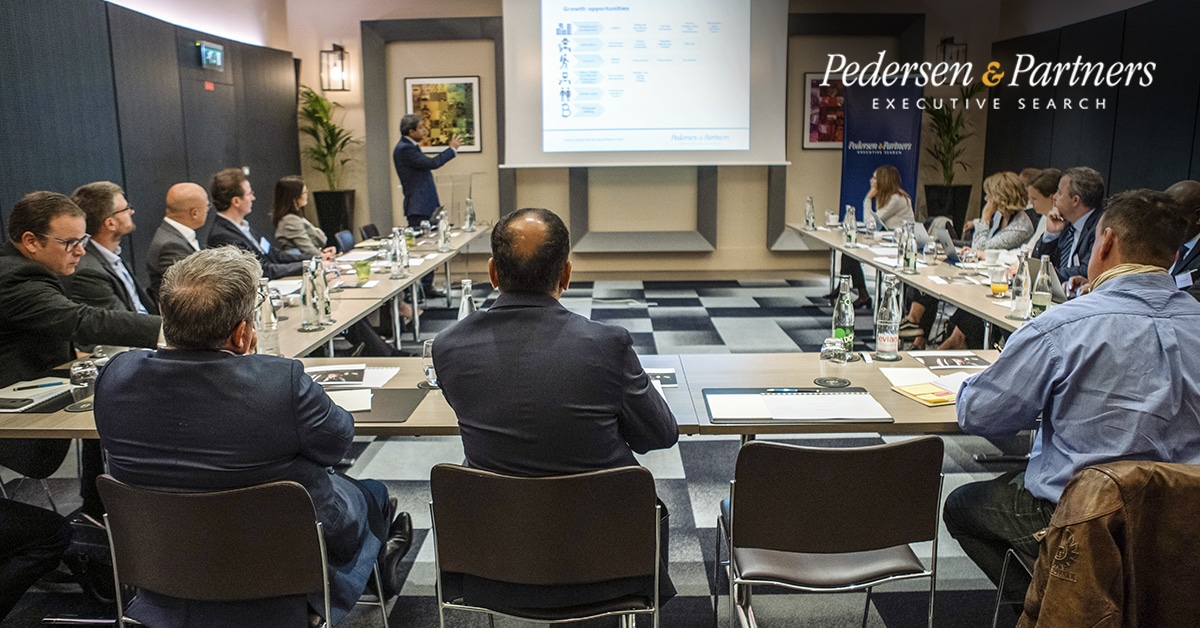
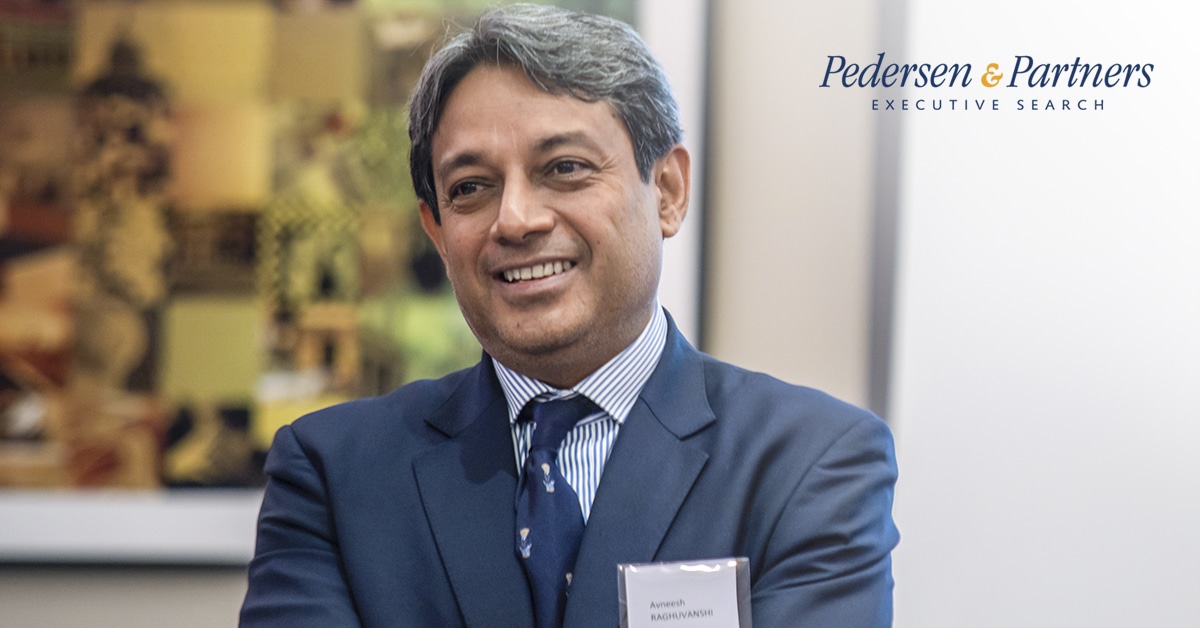
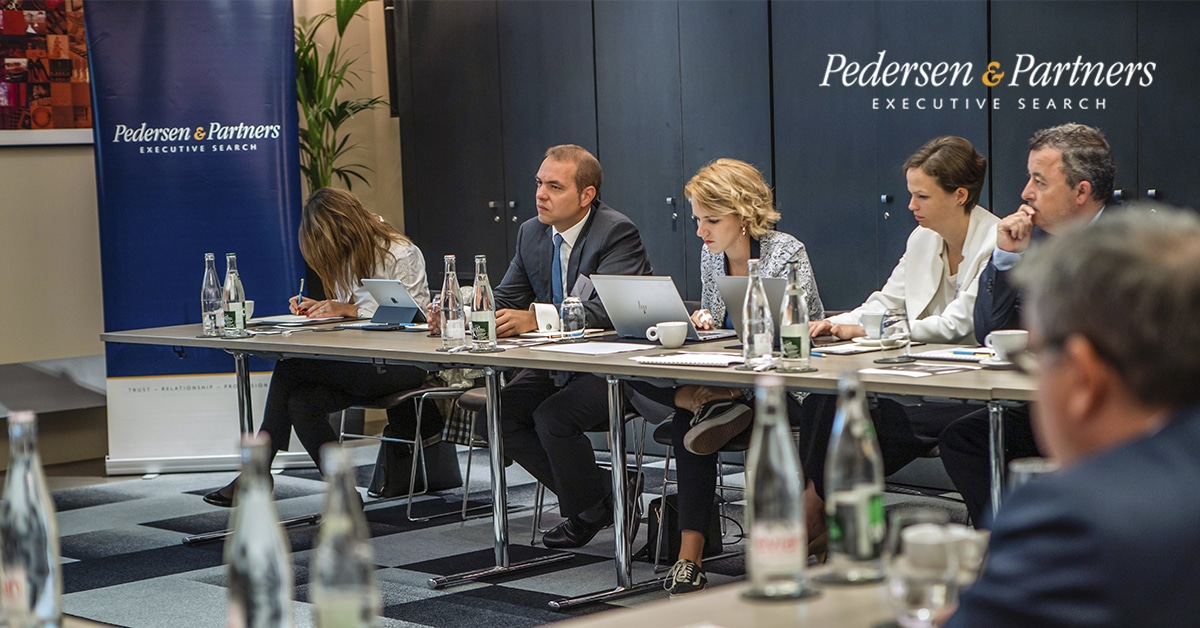
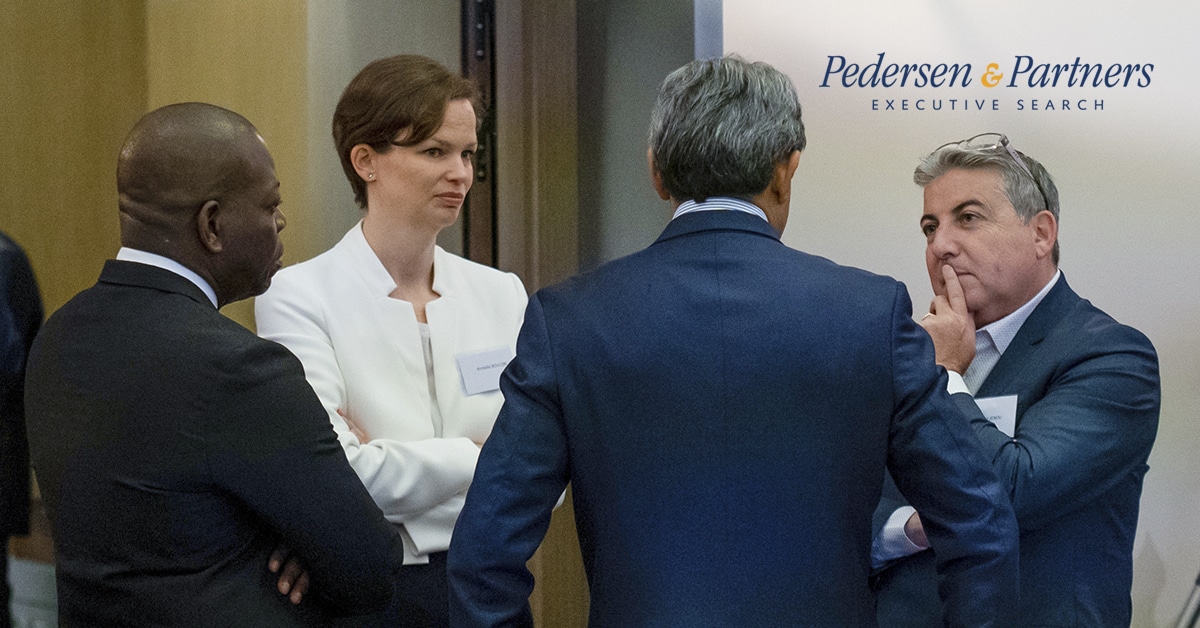
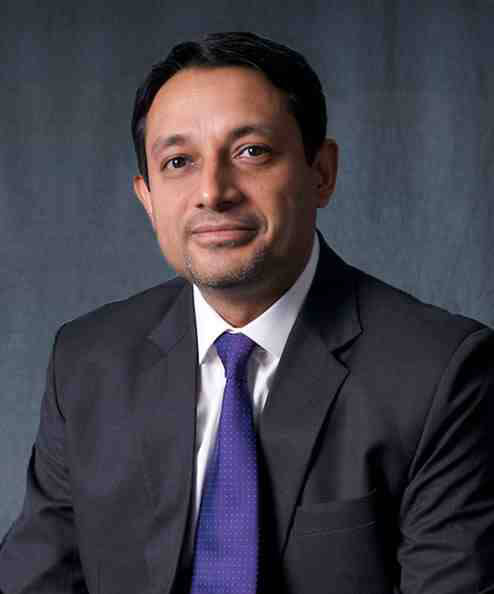 Avneesh Raghuvanshi
Avneesh Raghuvanshi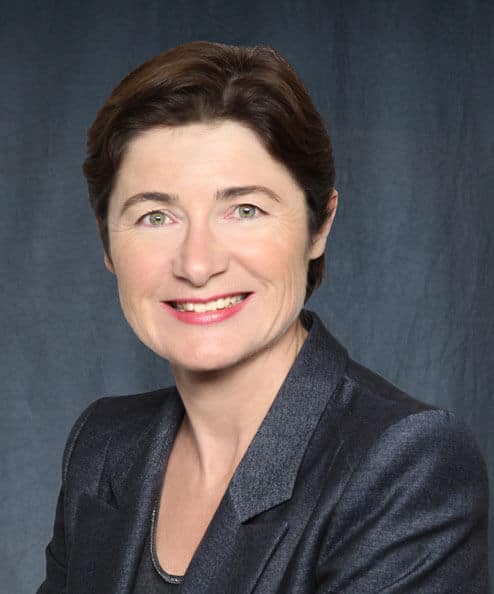 Laurence Maheo
Laurence Maheo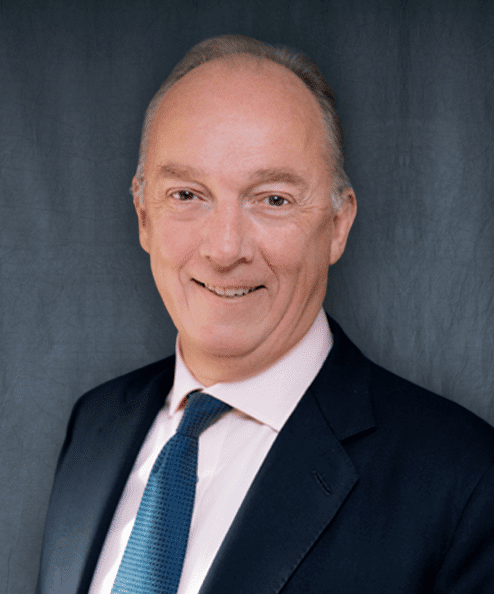 “Consumer goods and services searches account for a significant share of Pedersen & Partners’ assignments globally. For this reason, we strive to secure executives for our clients who can take advantage of volatile global economic trends, and harness the opportunities of consumption-driven economies. Marc brings two decades’ worth of search experience coupled with valuable business-related AI application knowledge, and this will help propel our Consumer Products Practice to the frontlines of the search industry,” stated
“Consumer goods and services searches account for a significant share of Pedersen & Partners’ assignments globally. For this reason, we strive to secure executives for our clients who can take advantage of volatile global economic trends, and harness the opportunities of consumption-driven economies. Marc brings two decades’ worth of search experience coupled with valuable business-related AI application knowledge, and this will help propel our Consumer Products Practice to the frontlines of the search industry,” stated 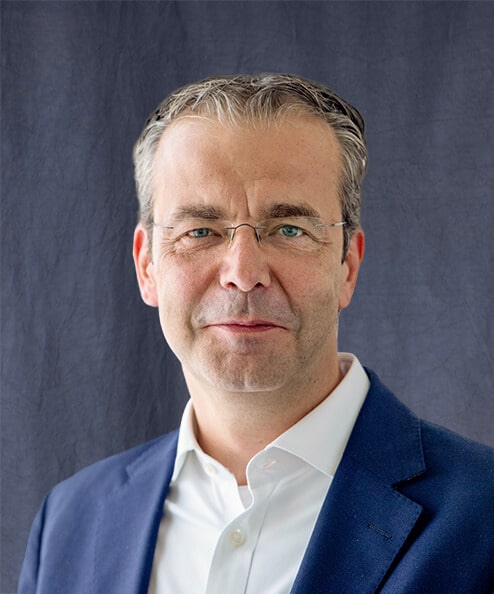 “Pedersen & Partners has been steadily gaining ground in the Executive Search industry and has built a reputation for value-centric searches with integrated cross-border solutions, from executive recruiting to leadership consulting. I’m delighted to join this team and I look forward to matching my business background with the firm’s global capabilities to strengthen our team and allow us to better serve all of our clients,” added Marc Kramers, Principal at Pedersen & Partners.
“Pedersen & Partners has been steadily gaining ground in the Executive Search industry and has built a reputation for value-centric searches with integrated cross-border solutions, from executive recruiting to leadership consulting. I’m delighted to join this team and I look forward to matching my business background with the firm’s global capabilities to strengthen our team and allow us to better serve all of our clients,” added Marc Kramers, Principal at Pedersen & Partners.
